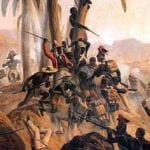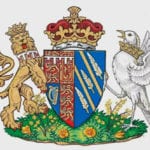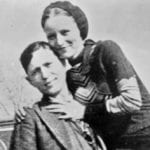 Movies and TV
Movies and TV  Movies and TV
Movies and TV  Health
Health 10 Miraculous Advances Toward Curing Incurable Diseases
 Miscellaneous
Miscellaneous 10 Undeniable Signs That People’s Views of Mushrooms Are Changing
 Animals
Animals 10 Strange Attempts to Smuggle Animals
 Travel
Travel 10 Natural Rock Formations That Will Make You Do a Double Take
 Movies and TV
Movies and TV 10 Actors Hidden in Your Favorite Movies
 Our World
Our World 10 Science Facts That Will Change How You Look at the World
 Pop Culture
Pop Culture 10 Incredible Female Comic Book Artists
 Crime
Crime 10 Terrifying Serial Killers from Centuries Ago
 Technology
Technology 10 Hilariously Over-Engineered Solutions to Simple Problems
 Movies and TV
Movies and TV 10 Movie Adaptions That Brought Popular Songs to Life
 Health
Health 10 Miraculous Advances Toward Curing Incurable Diseases
 Miscellaneous
Miscellaneous 10 Undeniable Signs That People’s Views of Mushrooms Are Changing
Who's Behind Listverse?

Jamie Frater
Head Editor
Jamie founded Listverse due to an insatiable desire to share fascinating, obscure, and bizarre facts. He has been a guest speaker on numerous national radio and television stations and is a five time published author.
More About Us Animals
Animals 10 Strange Attempts to Smuggle Animals
 Travel
Travel 10 Natural Rock Formations That Will Make You Do a Double Take
 Movies and TV
Movies and TV 10 Actors Hidden in Your Favorite Movies
 Our World
Our World 10 Science Facts That Will Change How You Look at the World
 Pop Culture
Pop Culture 10 Incredible Female Comic Book Artists
 Crime
Crime 10 Terrifying Serial Killers from Centuries Ago
 Technology
Technology 10 Hilariously Over-Engineered Solutions to Simple Problems
10 Brutal Little-Known Trials Of The Egyptian Afterlife
Death, for the ancient Egyptians, meant a lot more than just mummies and pyramids. The Egyptians had a terrifying vision of what awaited them after death. The souls of dead Egyptians didn’t just drift on to eternity—they had to fight for it.
After death, the Egyptians had to battle their way through the 12 lands of hell. They had to pass through rings of fire, sneak past gods, and hide from serpents and crocodiles that would try to devour their souls. It was a brutal, horrific journey, and it was a lot more exciting than your history teacher let on.
10 Fighting Through The 12 Lands Of Hell

Like most religions, the Egyptian faith promised a land of eternal paradise. They called it Aaru, the field of reeds, where endless crops grew in an unceasing abundance. Getting to Aaru, though, wasn’t exactly easy. To make it in, you’d have to battle your way through a place they called Duat: the 12 lands of hell.
Duat (also spelled Tuat and a number of other ways) was the netherworld that they believed waited above them in the sky. It was a massive, mystical world where you could find forests of turquoise trees, lakes of fire, and walls of iron. The Egyptians had the whole afterworld mapped out—literally. They had maps of Duat, showing it as a land divided into two paths by a lake of flames that consumed the souls of the damned.
The biggest threats, though, were the creatures that lived there. The land was filled with gods, demons, and monsters, most of which would annihilate the eternal soul of anyone who tried to pass through their domains. As the dead traveled through Duat, they would be pursued by serpents and crocodiles that would try to devour their souls.[1] If they wanted eternal life, they’d have to get past them all. If they failed, they would suffer through an eternity of oblivion.
9 The Dead Had To Make It Through Before Their Bodies Decayed
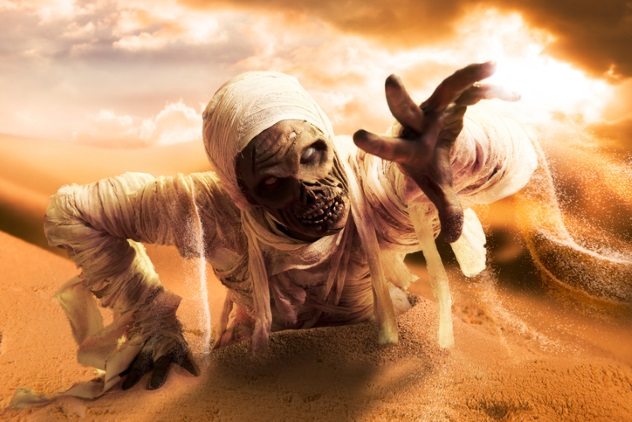
There was a reason the Egyptians mummified their dead. The souls of the dead, they believed, needed their bodies while they fought their way through Duat. A decaying body was a ticking clock. If their bodies decayed before they reached paradise, they would run out of time.
The soul, the Egyptians believed, split into two parts at death: the personality, which they called the Ba, and the vital essence, which they called the Ka.[2] It was their vital essence that traveled up into Duat, fighting for a chance at paradise. If it made it through, the two parts of the soul would be reunited and live forever—but only if the Ka could make it in time.
The Ba would spend the day flying around the world. At night, though, it needed to return to the body to rejuvenate its energy, and it could only return to the body if it could recognize it. If the body decayed into a skeleton, the Ba would drift about aimlessly, unable to find the other part of its soul, until its energy ran out.
The pharaohs bought time by getting mummified, ensuring that their souls would always be able to recognize their own bodies. For the poor, though, that wasn’t always an option. Their best hope was to be buried in a shallow grave in the desert, where the dry air would slow the decay of their bodies—and to rush through Duat’s 12 lands as fast as they could.
8 The Dead Still Needed To Eat
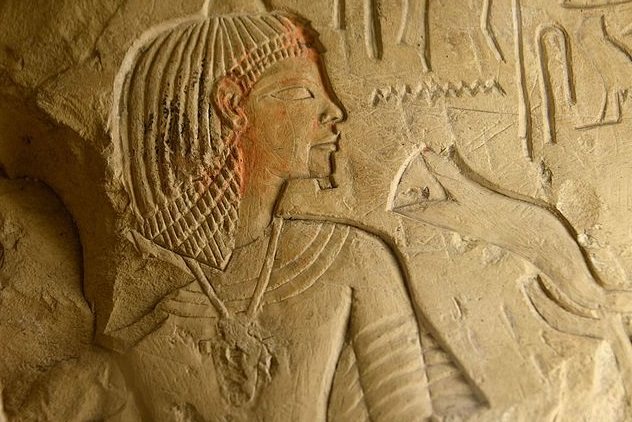
Even after death, an Egyptian soul still needed to eat. They needed to pack food for their long journeys through Duat, and they needed to make sure they could eat it—and that meant somebody needed to stuff food into them.
After the body of the dead was mummified, the Egyptian priests would start a ritual called the Opening of the Mouth and the Eyes. This was meant to ensure that the spirit could be given food and drink as well as see.[3]
To feed it, they’d build a statue in the dead person’s likeness. Then, they would chip mouth and eye holes into the statue. Until the soul made it through Duat, the priests would have to feed it—and that meant literally stuffing beef into the statue’s mouth.
It was more than just a ritual; it was a matter eternal life and death. If you didn’t have someone who cared enough about you to stuff beef into a statue’s mouth, your shot at eternal life was doomed. Your soul would starve in Duat, your eyes would be sealed shut, and you would have no chance of making it past the 12 gates of hell.
7 Traveling To Space In A Pyramid
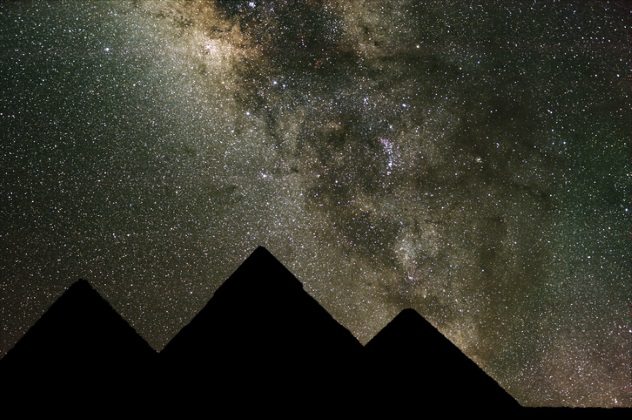
The soul, once released, still needed to find its way into the netherworld. Duat, the ancient Egyptians believed, was in the sky—and if you weren’t buried in a massive pyramid, it was nearly impossible to reach it.
Pyramids, in early Egyptian culture, were probably built to transport the soul into outer space. The Egyptians believed that the small, dark spot in the night sky around which the stars appeared to revolve was the gateway to Duat.[4] They would build shafts extending out of their pyramids, pointed directly at that small space, meant to launch the dead pharaoh’s soul up and into the domain of the gods.
That wasn’t exactly an option for people who weren’t pharaohs—which was probably on purpose. The Egyptians only built pyramids in the earlier days of the empire, and at the time, people were told that the only person who was allowed an afterlife was the pharaoh. Later on, they opened up the afterlife to everyone else, but when the pyramids were built, they were seen as the only shot any living person had at a second life. Everyone else on Earth, they believed, was fated to simply cease to exist.
6 Servants Would Be Killed With The Pharaoh
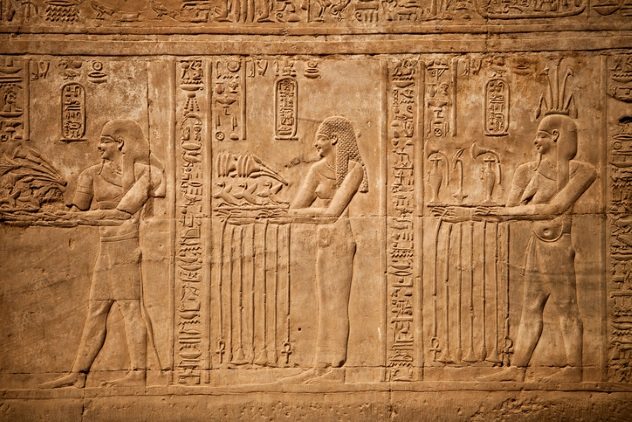
The pharaoh wouldn’t go to the afterlife alone. He took people with him—by murdering them.
A dying pharaoh expected to enjoy all the comforts of life in the afterlife. That meant having his servants, his artists, and everyone dear to him at his side. They’d be brought into the pharaoh’s tomb on the day of his death and poisoned. Sometimes, that even included animals. In fact, one pharaoh was buried with seven lions to accompany him on his journey to the afterlife.
Some of them went wild with this idea. The most extreme was a pharaoh named Djer, who poisoned 569 people so that he could take them with him to the other side.[5] Another pharaoh named Aha only took a few dozen people with him—but he made sure that one of them was his five-year-old son. By the pharaoh’s orders, the young boy was poisoned and buried before he would ever have the chance to grow up.
5 Threatening The Gods To Get Into Heaven
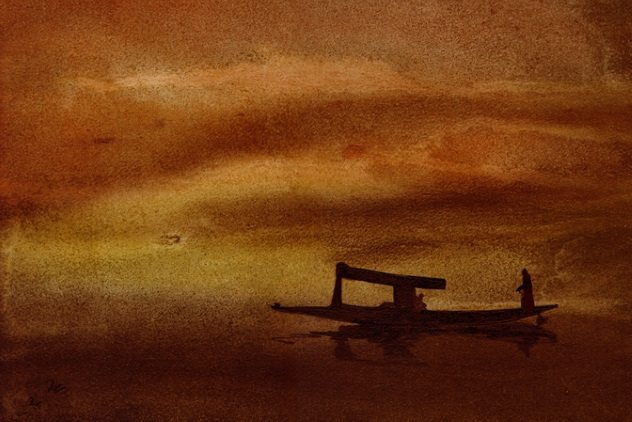
A great body of water, the Egyptians believed, separated the sky from the Earth. To get into Duat, they would have to cross it—and the only way across was to convince the Ferryman of the Gods to take you.
That’s not an altogether unique idea about the afterlife, but the Egyptians handled their ferryman a bit differently than the Greeks did. They didn’t pay him a toll or treat him with the type of reverence you’d expect someone to offer the being responsible for the fate of their immortal souls. They’d just yell at him.
Egyptian priests would chant prayers to the Ferryman, first assuring him that no person accused the dead soul of misdeed and then begging him to “ferry [the dead] in this boat in which you ferry the gods.”[6]
Then the tone got dark. “If you fail,” they would warn the Ferryman, the dead pharaoh would “leap and sit on the wing of Thoth,” a god with unlimited power in the underworld who would make the Ferryman suffer for not doing his job.
4 Crossing Through The 12 Gates
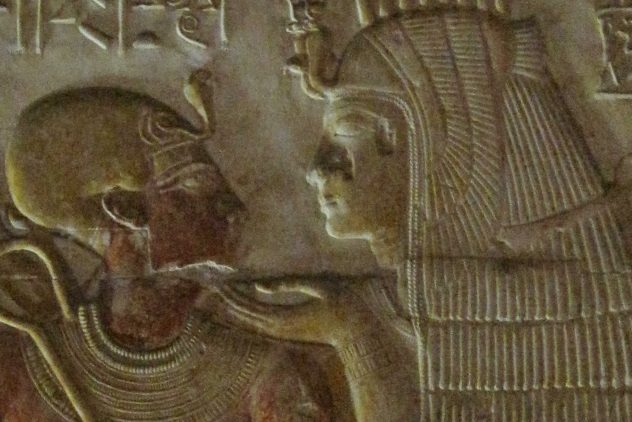
Getting through Duat wasn’t easy. Before an Egyptian soul could make its way to the paradise of Aaru, it would have to cross through 12 gates. Each one had a guardian, and each guardian had to be appeased if you were to get across. That wasn’t easy, though—and if a soul died in Duat, it was destroyed forever.
Priests wrote guides on how to pass through, warning the living of the dangers they would face in Duat. At one doorway, they warned, they would find two beautiful women waiting for them, who would say, “Come, we wish to kiss you.” The dead soul would have to show he recognized them for the gods they were and call them by their names: Isis and Nephthys. Otherwise, they would cut off his nose and his lips.
Every gate had a guardian, each one with its own cruel way of destroying souls. Before entering the gate that led to the desert land ruled by the god Seker, for example, the dead soul would have to create an image of the god that ruled over it. Otherwise, his soul would be hacked into pieces.[7]
3 The Sealed Thing
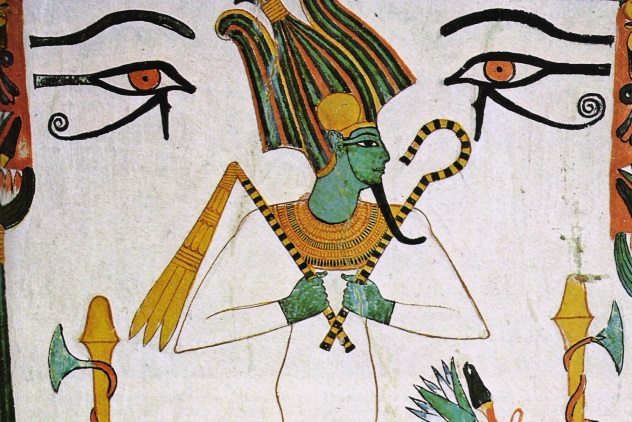
A soul traveling through Duat would have to resist one terrible temptation. At the end of his journey, the Egyptians knew, he would be judged by the gods. Only the worthy would be allowed to move on to paradise—but if you weren’t worthy, there was another way to become immortal.
At the boundaries of the sky, the Egyptians believed, there was a land called Rosetau. This was the place where the god Osiris’s body had been buried. Anyone who could reach it, they believed, would gain eternal life.
Getting to Osiris’s body, though, wasn’t easy. His corpse was in a land of complete darkness surrounded by a wall of fire, locked inside something that they only called “the sealed thing.”[8] The Egyptian priests warned the living that this path to immortality was far too dangerous. Nobody, they said, had ever made it close enough to see inside.
2 Cannibalizing The Gods
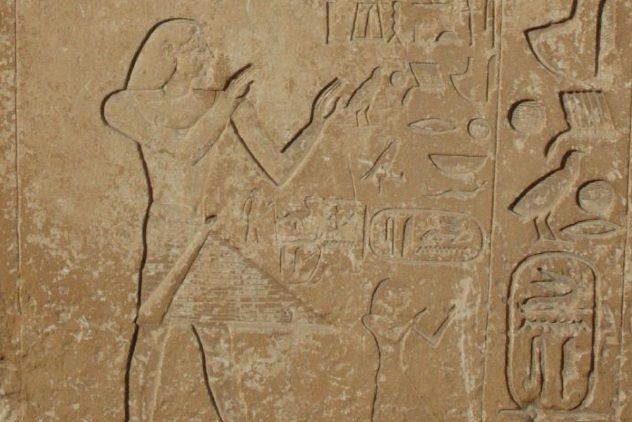
As terrifying as Duat was for a commoner, most of the pharaohs weren’t too worried about it. They felt entitled to eternal life. They were destined to become gods, they believed. They weren’t scared of other gods. In fact, some pharaohs threatened the gods before death.
When Pharaoh Unis (aka Unas) died, he had his priests chant to the gods that they needed to watch out. Unis was coming, the pharaohs promised, and he was going to tie them down and eat them. “Unis is he who eats men and feeds on gods,” the priests warned the gods, “who eats their entrails!”[9]
The early pharaohs believed that eating the gods would let them absorb their magical powers. Some of them were pretty confident they could pull that off—and nobody more so than Unis. Unis’s grave is full of warnings, telling the gods that if they didn’t want to get eaten, they’d have to pin down their friends and help carve them up for him.
“The big ones are for his breakfast,” Unis’s priests warned the gods, “the middle ones are for his dinner, the little ones are for his evening snack.”
1 The Weighing Of The Heart
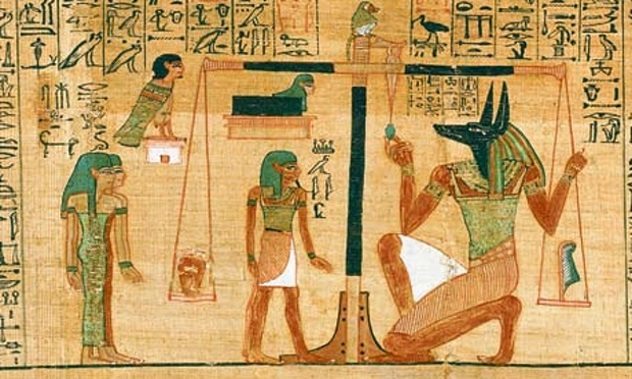
If a soul could make it through Duat without being thrown into the fire, it would get its chance to be judged worthy of paradise.[10]
The soul would come face-to-face with Osiris, the undead lord of the underworld. Before their god, the Egyptians would have to swear that they had not broken the divine laws. Then their hearts were weighed against the feather of the goddess Ma’at.
If the soul was innocent, he would be allowed to move onto Aaru, the field of paradise. A servant might be allowed to live out eternity in a world of abundance, while a pharaoh might be allowed to become a god.
But if the heart was unworthy, the dead man’s soul would be thrown to a beast called Ammitt, the Devourer. Ammitt would torture them, tear them apart, throw them in the fire, and cast their souls into oblivion.
Even after surviving the long, dangerous journey through Duat, it could all be for nothing. Nothing about the paradise on the other side was guaranteed. No matter how diligently a soul fought, it could all still end with its destruction.
Read more about ancient Egypt on 10 Ancient Egyptian Medical Practices We Still Use Today and 10 Ways Ancient Egyptians Influenced Modern Life.
